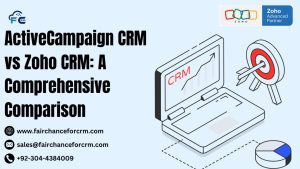Businesses are depending more and more on software solutions to run their operations in the current digital era. Odoo Vs QuickBooks are two of the most widely used business management software programs. Both are powerful tools, but they have various features, benefits, and drawbacks and cater to different business needs. This essay will compare the main features, coding options, advantages, limitations, and conclusion of Odoo with QuickBooks.
Also Read:
- Odoo Import XML Files with OCA
- AI Autocompleter in Odoo
- Internal Owner Transfer in Odoo
- AI Invoice OCR in Odoo
- Odoo vs Microsoft Dynamics
Odoo vs QuickBooks – Complete details
Overview of Odoo
Odoo is an open-source ERP (Enterprise Resource Planning) solution that provides a comprehensive suite of business applications. Accounting, sales, inventory management, CRM, project management, human resources, and other modules are among them. Odoo is appropriate for both small and large businesses because to its great degree of customization and scalability.
Key Features of Odoo:
- Modular System: Odoo has over 30 core modules and thousands of third-party modules that can be added to extend functionality. This allows businesses to tailor the software to their needs.
- Open Source: Odoo’s open-source nature allows for full customization, making it a favorite for businesses that require highly specialized solutions.
- Integrated System: Odoo provides an integrated ecosystem, enabling seamless flow of data between different business functions.
- Multilingual & Multicurrency Support: Odoo supports multiple languages and currencies, making it ideal for global businesses.
- Cloud and On-Premise Deployment: Businesses can choose to host Odoo on the cloud or on their own servers.
Overview of QuickBooks
With desktop and cloud-based options for managing finances, recording income and expenses, billing customers, and creating financial reports, QuickBooks is one of the most widely used accounting software programs available and was created especially for small and medium-sized enterprises.
Key Features of QuickBooks:
- User-Friendly Interface: QuickBooks is known for its simple and intuitive interface, making it easy for non-accountants to manage their finances.
- Accounting Focus: QuickBooks is primarily designed for accounting tasks, including payroll, invoicing, tax calculations, and financial reporting.
- Cloud-Based and Desktop Versions: QuickBooks offers both cloud and desktop versions, allowing businesses to choose the deployment method that best suits their needs.
- Integration with Financial Institutions: QuickBooks connects to banks, credit card companies, and other financial institutions to automatically download transactions and reconcile accounts.
Key Differences: Odoo Vs QuickBooks
1. Functionality
- Odoo: Odoo is an ERP system that provides a full range of business applications across multiple domains. Its functionality extends well beyond accounting, offering tools for CRM, project management, inventory, e-commerce, HR, and more.
- QuickBooks: QuickBooks, on the other hand, is focused primarily on accounting and finance. It’s great for managing bookkeeping, payroll, invoicing, tax filings, and generating financial statements, but it lacks the broader business management features that Odoo offers.
2. Customization and Flexibility
- Odoo: Being open-source, Odoo is highly customizable. Businesses can tailor Odoo to meet their specific needs, add custom modules, and even develop their own applications.
- QuickBooks: QuickBooks offers a degree of customization, but it’s not as flexible as Odoo. QuickBooks provides plugins and integrations, but businesses are more limited in altering the core functionality of the software.
3. Target Audience
- Odoo: Odoo is suited for businesses of all sizes, including small businesses, mid-sized companies, and large enterprises. It’s especially beneficial for businesses that require an all-in-one solution to manage various departments.
- QuickBooks: QuickBooks is primarily targeted at small to medium-sized businesses. While it is great for startups or businesses that only need accounting tools, it can be limiting for larger organizations with more complex needs.
4. User Interface
- Odoo: Odoo’s interface is sleek and modern, but because it offers so many modules, it may have a steeper learning curve for new users, especially if they are only looking for accounting functionality.
- QuickBooks: QuickBooks is known for its user-friendly, simple interface. It’s designed to be intuitive for people with limited accounting knowledge, which makes it easy to adopt quickly.
5. Cost
- Odoo: Odoo offers a free community edition (open-source), but businesses usually opt for the Enterprise edition, which comes with additional features and support. Pricing for Odoo Enterprise depends on the number of users and modules chosen.
- QuickBooks: QuickBooks offers different pricing tiers depending on the features required. The cloud-based version has subscription fees, while the desktop version has a one-time purchase cost. It’s generally more affordable for small businesses, especially those that don’t need an extensive suite of applications.
Example of Coding in Odoo
Odoo’s open-source nature allows for deep customization through Python code and XML for the user interface. Below is a simple code example showing how to create a custom Odoo model and use XML to import data.
Python Code for Creating a Custom Model in Odoo
XML Data Import Example in Odoo
In this example, an Odoo custom model product.custom is created, and products are imported via XML into the Odoo system.
Benefits of Odoo
- Comprehensive Suite: Odoo is an all-in-one solution that covers all aspects of business operations, from sales and marketing to HR and accounting.
- Open-Source and Customizable: Odoo’s open-source nature allows businesses to modify and extend the software as needed.
- Scalability: Odoo is highly scalable, making it suitable for businesses of all sizes, from small startups to large corporations.
- Integrated Solutions: All Odoo modules are tightly integrated, ensuring that data flows seamlessly between different departments.
Disadvantages of Odoo
- Complex Setup: Odoo can be complex to set up, especially for small businesses or those with limited technical expertise.
- Cost of Enterprise Version: The Enterprise version of Odoo can be expensive, especially when adding multiple modules and users.
- Learning Curve: Due to its vast array of features, Odoo has a steep learning curve, which can make adoption challenging for new users.
Benefits of QuickBooks
- Ease of Use: QuickBooks is known for its simple and intuitive interface, making it easy for non-accountants to use.
- Affordable: QuickBooks offers affordable pricing plans, particularly for small businesses.
- Strong Accounting Features: QuickBooks excels in accounting, with powerful tools for invoicing, payroll, tax filing, and financial reporting.
- Cloud Access: QuickBooks Online offers cloud-based access, allowing businesses to manage finances from anywhere.
Disadvantages of QuickBooks
- Limited Features: QuickBooks is primarily an accounting tool and lacks broader ERP functionalities such as CRM, project management, and inventory management.
- Scalability: While QuickBooks is suitable for small and medium-sized businesses, it may not scale well for larger organizations with more complex needs.
- Customization: QuickBooks is less customizable than Odoo, especially for businesses with specific workflow requirements.
FAQs
1. Which is better for small businesses: Odoo Vs QuickBooks?
QuickBooks is often better for small businesses that need a simple, user-friendly accounting tool. Odoo, on the other hand, is better for businesses that need a comprehensive ERP solution that goes beyond accounting.
2. Can Odoo replace QuickBooks?
Yes, Odoo can replace QuickBooks, as it includes accounting functionality within its ERP system. However, Odoo is more complex and may require more setup and customization.
3. Is QuickBooks easy to use for non-accountants?
Yes, QuickBooks is well-known for having an intuitive user interface, which makes it a fantastic option for small business owners and non-accountants that want basic financial management.
4. Does Odoo support customization?
Yes, Odoo is highly customizable. Businesses can extend its functionality by creating custom modules using Python and XML.
Conclusion
Odoo Vs QuickBooks are both great tools, but they have different uses. Suitable for companies of all sizes, Odoo is an all-in-one ERP solution with a wealth of capabilities beyond accounting, such as project management, inventory control, and customer relationship management. It is ideal for companies that need customization and complete departmental integration.
QuickBooks, on the other hand, excels as an accounting solution and is ideal for small businesses that only need financial management features like bookkeeping, invoicing, and payroll. It is a fantastic choice for small businesses searching for simple accounting software because it is affordable, simple to use, and has a flat learning curve.
In the end, your company’s size, requirements, and long-term growth goals will determine which option is best. QuickBooks is a great choice if you’re looking for an easy-to-use accounting system. However, if you require a fully integrated ERP system with scalability, customization, and a broad range of features, Odoo is a powerful choice.
For more information about the Odoo Vs QuickBooks, visit this link.
If you want to Free Trail Zoho, click on this link.




